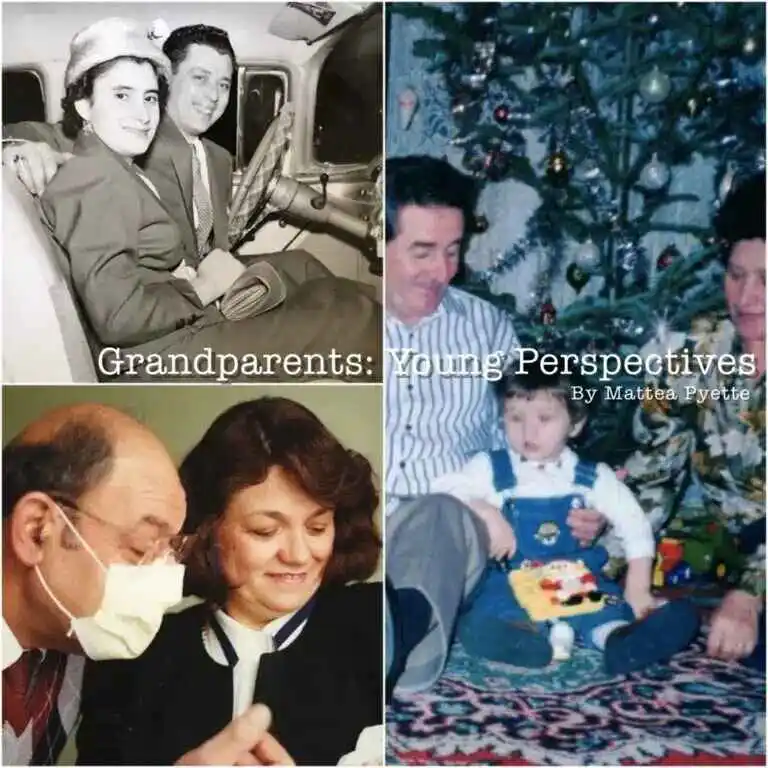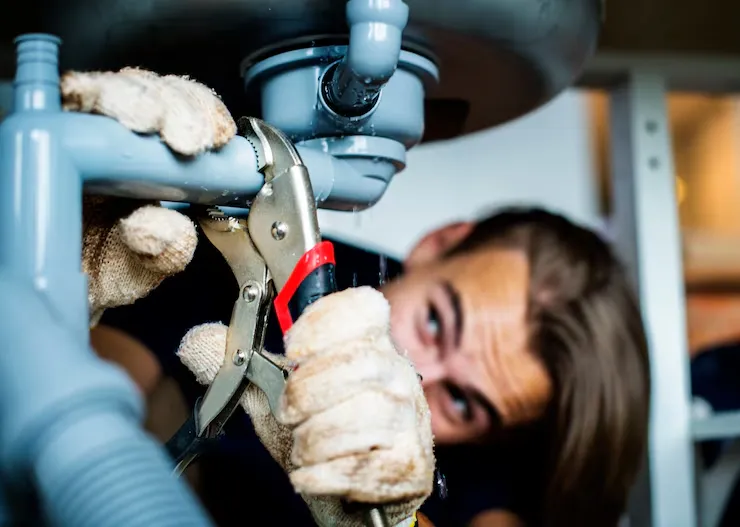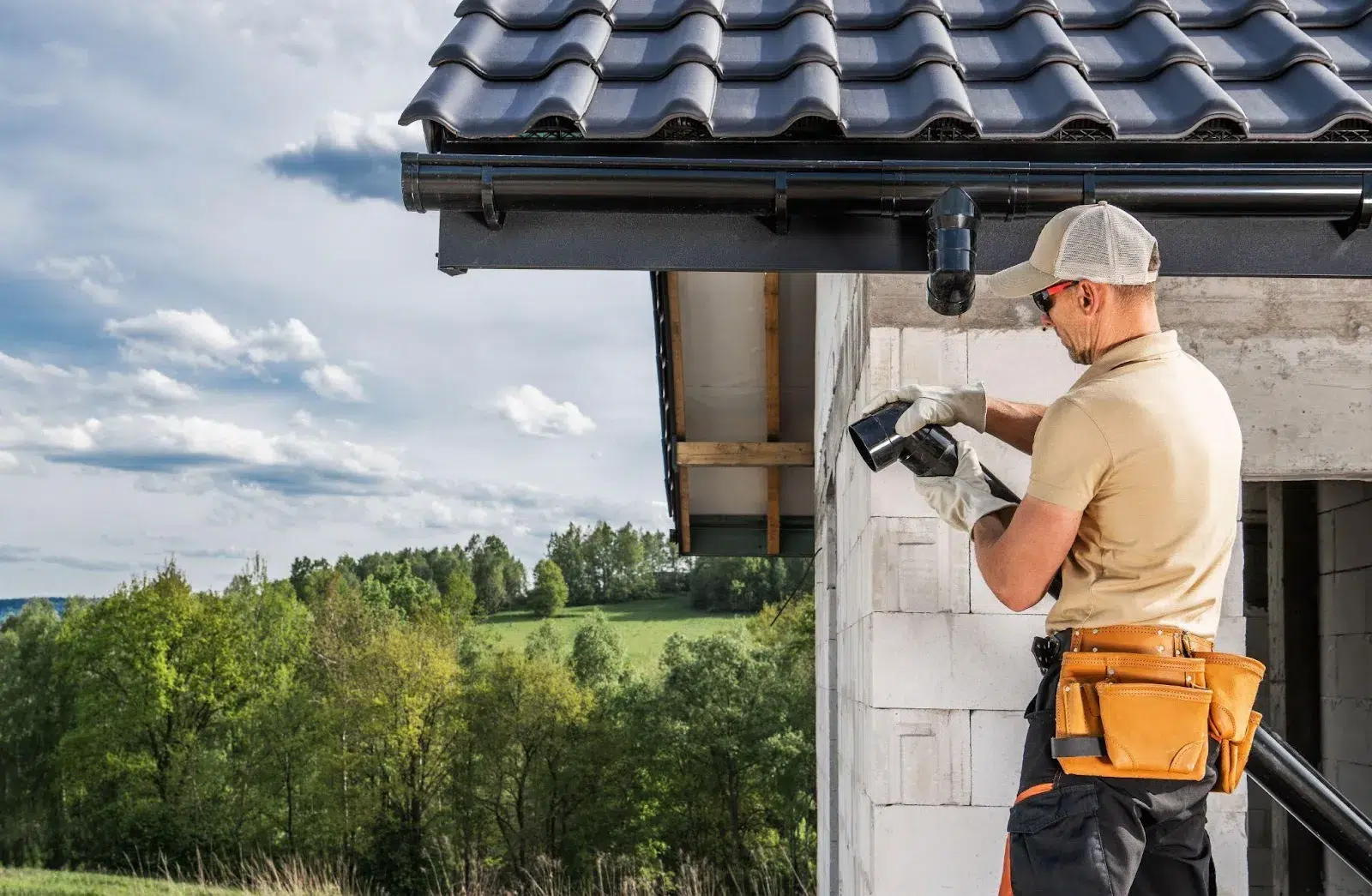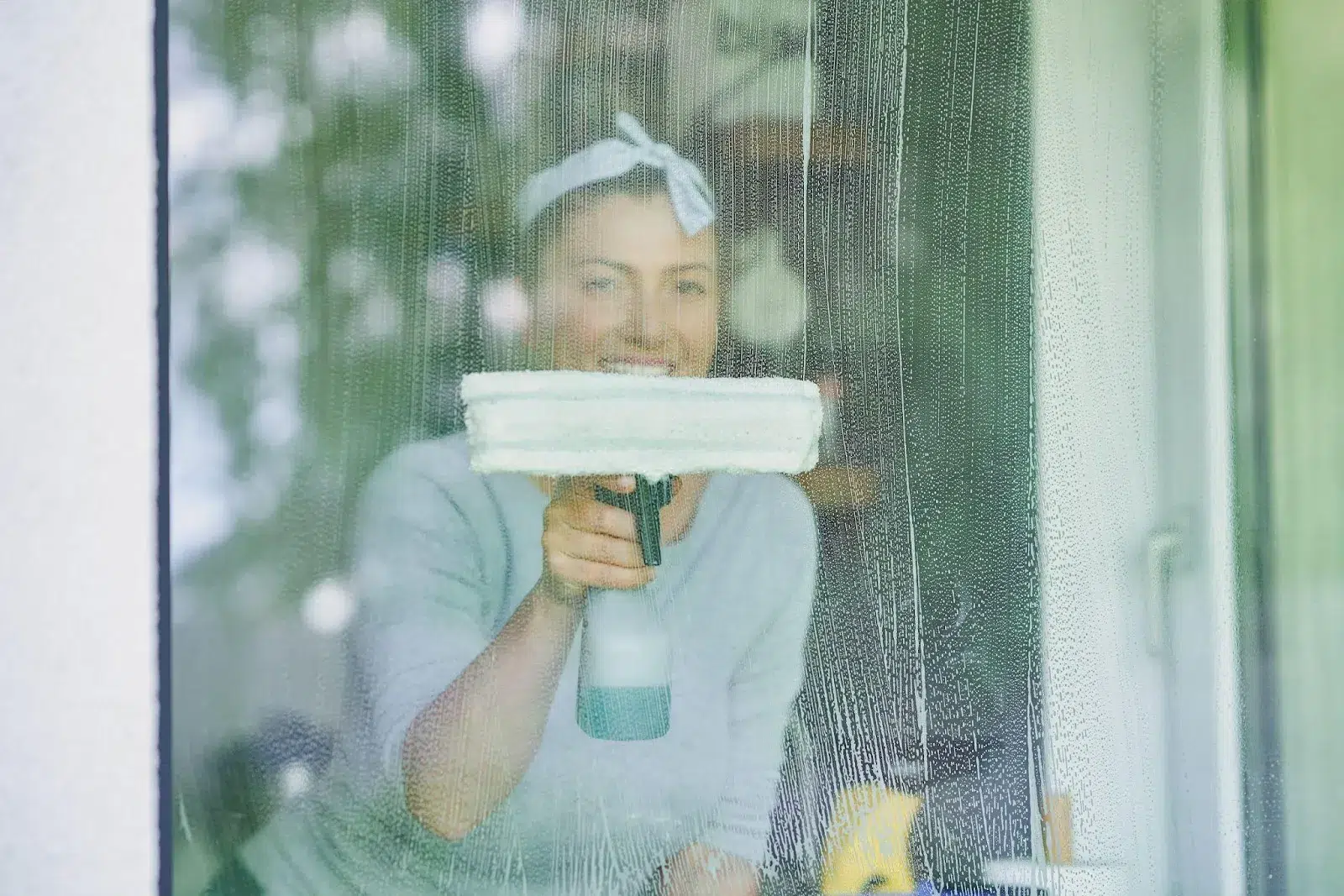By Mattea Pyette
My grandparents are Italian immigrants who arrived in Canada in 1948 and 1956. Both arrived by boat in Halifax and eventually settled in Sudbury, Ontario. They married in 1957. My mother is their second oldest child. I grew up a 7-hour drive away from them, slightly isolated not only by the distance but also by the language barrier. They both speak English, but I found their Italian accents hard to understand as a child and Canadian childhood nuances often got lost in translation. However, I still love and cherish time spent with them. My Nonno is 92 and my Nanna is 80 now. They are dutiful and hardworking people with their own unique personalities. When my mom called to verify the years they arrived in Canada, my Nanna giggled – why!? She supposes it was May when she was 17. My Nonno, in the background, called out in Italian with zero hesitation, ‘June 17th, 1948.’
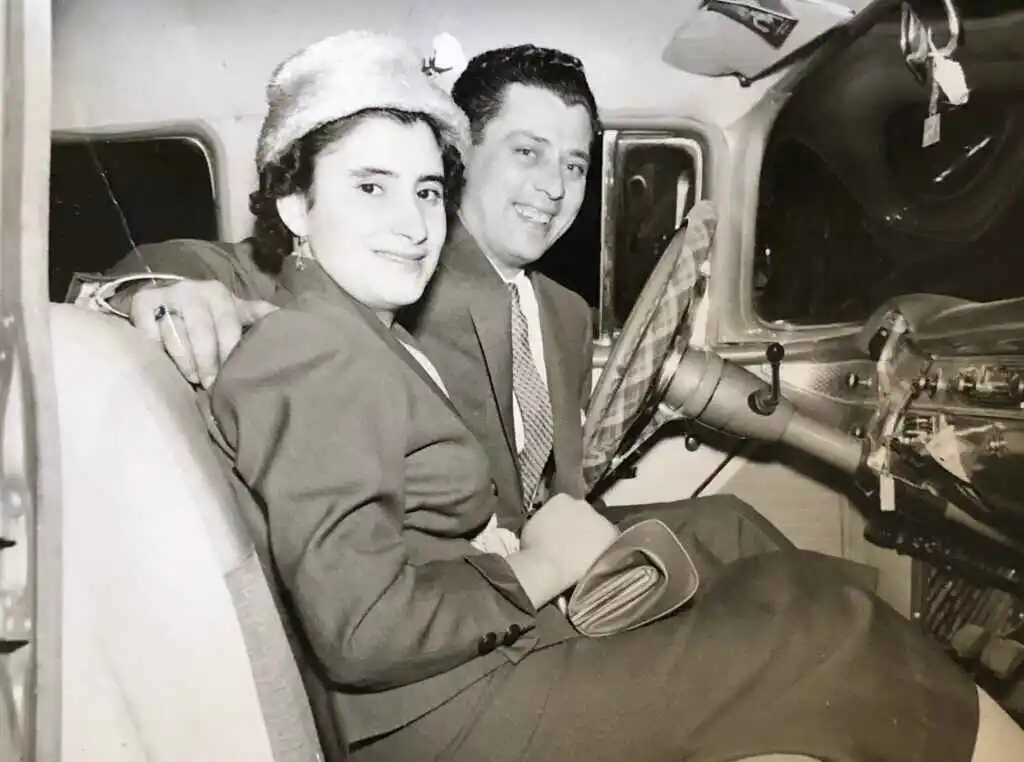
My other set of grandparents died years before I was born. All I know of them is what I’ve learned in my father’s stories; my grandmother was a saint, and my grandfather was a character. I grew up not realizing that other kids were extremely close to their grandparents. When I was little, I had the tendency to think all my experiences were universal ones. Since I did grow up with a father old enough to be my grandfather, I wasn’t lacking in the presence of an older person in my life. But still, I’ve always wanted to know more about the dynamics in a close grandchild/grandparent relationship. So, in preparation for this article, I decided to sit down with my friends who hold this special bond. I spoke with my brother’s girlfriend, Kassandra Nuyten, whose Greek immigrant grandparents were a major part of her life in childhood and continue to be so. I also spoke with Mac Buchwald, whose grandfather was a rural Baptist minister at one church for 50 years.
Read more about Rethink Aging With Colin Milner
Kassandra Nuyten is a 26-year-old library assistant at Western University. She graduated from Western with a degree in Classics. Kass was on the Dean’s List and had the highest mark in her program’s graduating class. She returned to Western for a masters in Library Information Sciences, and secured her current job the day after her masters graduation. I have known Kass very well for seven years. She is the most hardworking person I know. She is also probably the smartest; whenever I learn a new obscure tidbit of information, I ask Kass what she knows about that thing just to test her. Nine times out of ten she already knew what I’d just learned. She credits this determination to her grandparents’ heavy involvement in her life, and their insistence on a University education for her.
Yiayia and Pappou came to Canada from Cyprus in the early 1960s. They decided on London, Ontario by accident – Pappou thought London meant England. Yiayia worked in a sewing factory and Pappou was a welder for GM. When I decided to do a piece on close relationships with grandparents, Kass was the first person I knew I would be interviewing. She talks about her grandparents more than anyone I know. She sees them at least once or twice a week on a regular basis. I start out by asking Kass the impact her grandparents have on her life. She beams. “Oh, the biggest. They were the most important people in raising me. They’re really involved in my life. The whole thing, since birth to now. Their approval is still everything. In my entire family they pretty much run everything.”
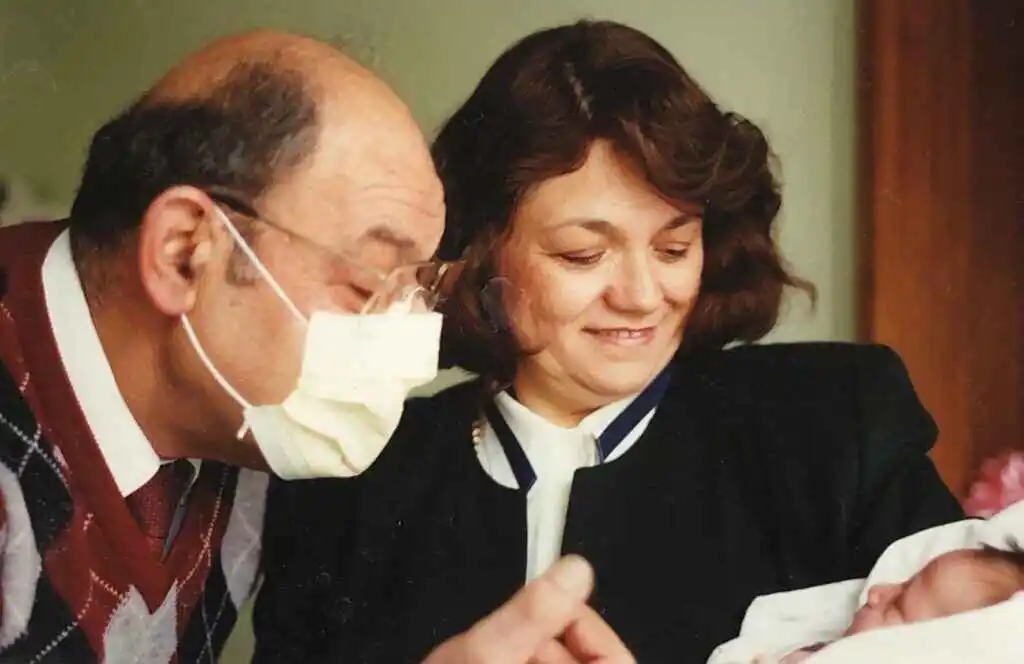
Kassandra’s parents split up when she was six. Leading up to their split, her mother had only just started working part-time. Yiayia had retired from work after injuring her hand in the sewing factory, so she was available to take care of Kass and her brother, Andrew. Their grandparents’ house was their daycare. When Pappou retired, he had a routine of coming over every morning, making breakfast, letting Kass and Andrew watch TV while they ate, packing their lunches, and driving them to school. Then he’d walk over to pick them up after school. When it rained, he showed up with a big golf umbrella and the three of them would walk home together holding hands. They’d stay at their grandparents until their mom arrived home from work, then the five of them would have dinner as a family. Kass would do her homework at the dinner table every night. Yiayia would grill her on her timetables. I ask Kass if she thinks her work ethic and dedication to higher education comes from this influence.
“Oh yeah. Like, when I was a kid, the epitome for me was always ‘You have to go to University.’ I think because both of them never finished their education. So to them, education meant you could have a higher social class and do better. There were a lot of people that they knew when they came here had who done more education and ended up getting better jobs in Canada because of it.”
Did she ever wish her grandparents weren’t so hard on her?
“I think when I was going through it, it always frustrated me because I never understood why they were so hard on me. They actually stopped putting so much pressure as soon as I got to University, because I’d gotten to the point they expected me to. But because of the time I’ve spent with them as an adult I also came to understand where it came from.”
Apart from going to university, did her grandparents ever give her any major pieces of advice? Kass snickers at this; “Like, positive advice?” I laugh too, thinking of stories she’s told me of her grandmother’s critical nature, and tell her it could go either way. She pauses for a moment. “My Pappou would always say to be grateful for your siblings because he didn’t have any growing up.” Kass begins to get choked up. In addition to being an only child, Pappou’s parents died when he was very young. He didn’t have a family to rely on. This is where the other piece of advice comes in, one that I see every single day in Kassandra’s actions; always be hardworking, independent, and self-reliant. Kass has followed her grandparents wishes for her to the letter and is happy doing so. I can’t imagine how proud of her they are.
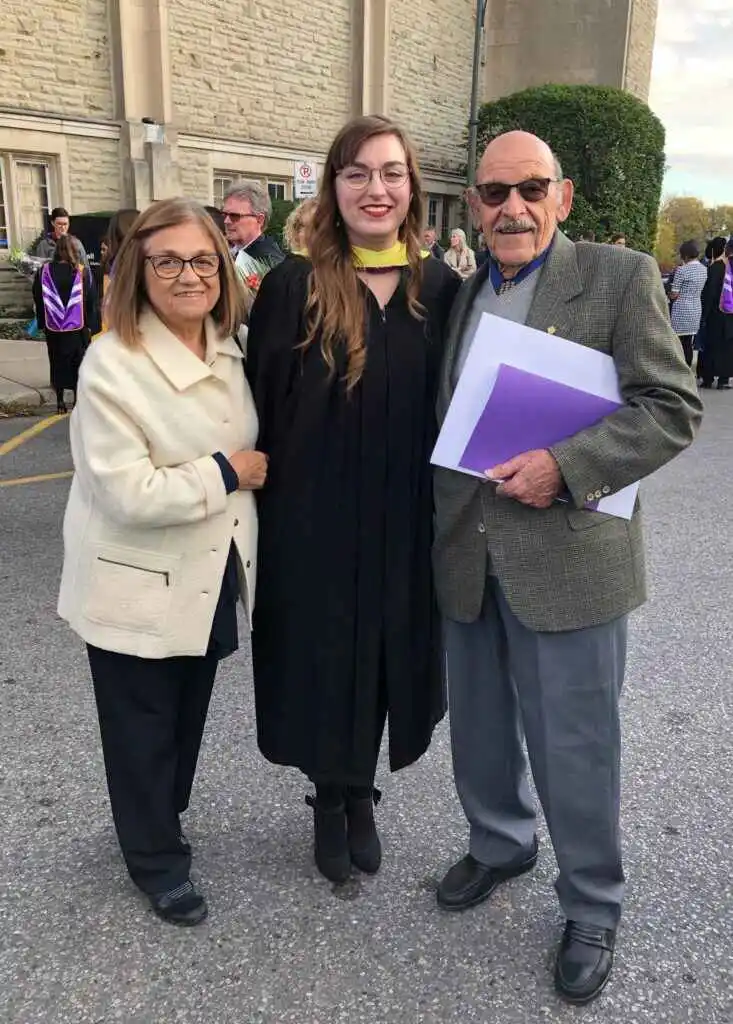
The story of Mac Buchwald’s grandparents is like something out of a TV show – he himself compares their dynamic to 1955 TV show The Honeymooners. His Nanny and Papa on his father’s side are “super old school.” His Papa was a Baptist minister at the same church of a small rural community for 50 years. Mac says that although he was old school, he was ahead of his time in the community with pretty liberal social views that helped lend to Mac’s own perspective. Papa came down from a small town up north called Killaloe for Bible College and ended up marrying the daughter of the family he lived with during his stay. Mac describes his Nanny as “your typical housewife figure, and she loved it. But she was also my Papa’s right-hand-man in the ministry.” She taught Sunday school right alongside her husband for 50 years, even continuing after he retired. “They were partners in crime.”
Mac’s other set of grandparents are younger, an opposite model from his father’s parents. His grandfather on his mother’s side is actually his step-grandfather, though they have been together for many years. They are younger and “with it.” Mac lives with them while he goes to school at King’s University College, where he is a double major in Criminology and English. He tells me stories about both sets of grandparents, but it is clear that his grandfather John, the minister, is the most influential on him. It’s clear even in the way he speaks; my friends and I often joke that he speaks like a happy old man. “Where do you girls get so much energy this early in the morning!?” is something he genuinely once said.
John Buchwald passed away at home from colon cancer when he was 80. Mac watched him die. “It’s kind of sad. He was a workaholic, my grandfather. He retired when he was 75 and got sick shortly after. He didn’t have much time to enjoy retirement. In fact, I don’t think he would’ve liked sitting around anyway.” One of the most important things to Mac’s Papa was feeding people. They never had a lot of money, but they always had a full table. He gave everything he had to his family. He had a garden that he worked with his own hands and chickens he raised. He loved to cook German style. Mac and his whole family have had dinner at his Nanny and Papa’s every Sunday as far back as he can remember, and they still do. When his Papa got sick, his aunt and uncle converted his grandparents’ house so that Papa could continue to live at home.
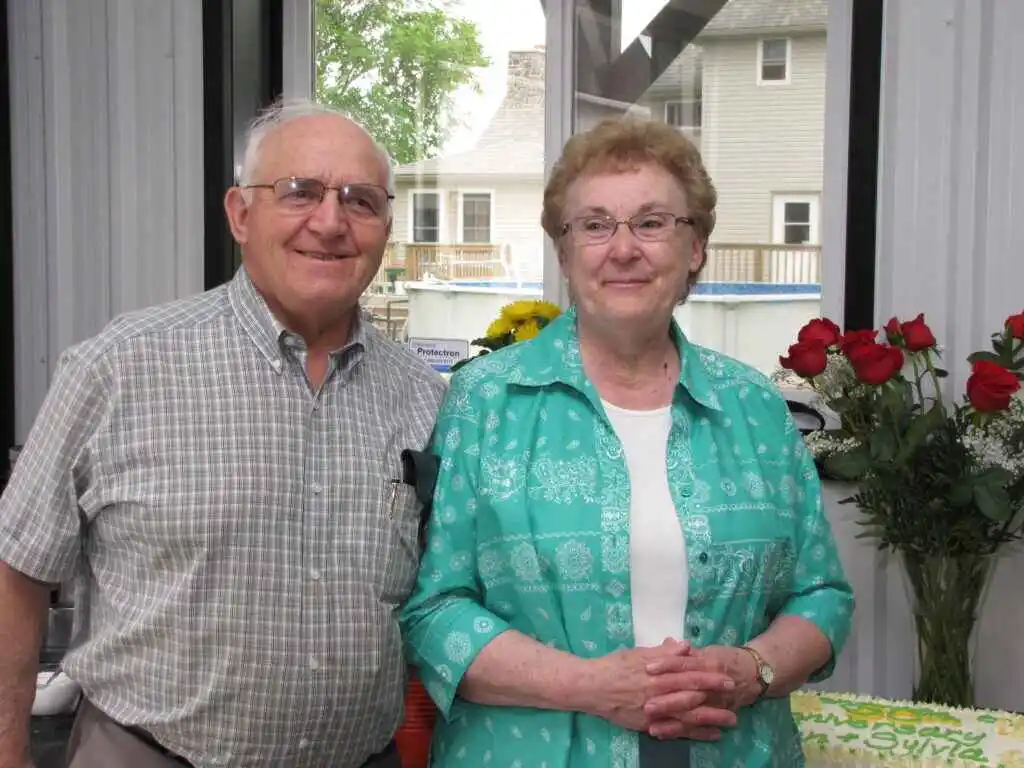
“It’s fascinating. The road I live on in this small country town, Hartford, near the Ohsweken Reservation in Norfolk County, near the end of the road is my house, a little more up the road is the Aunt and Uncles house with the farm, and then across the street from them live my grandparents. When my Papa retired, they didn’t have a nickel to rub together, but my aunt and uncle were very good to them. They re-built this old country house for them. They made it accessible so they could live on one floor and still host these Sunday dinners there every week. He was able to stay in his home until he passed away.”
Mac is clearly very fortunate for the experience and closeness he had with his Papa. He feels that he was very privileged in always getting to be around his grandparents. “Almost in a sense, when he died, I felt like I took that time for granted. Spending so much time with them, as a young kid you don’t take it as special as it should be.” We talk about grandparent relationships like mine and like Mac’s girlfriend Taylor’s, where that closeness is absent. “So I know I’m lucky that I did have such a strong tie with my grandfather.”
In writing this article and speaking with people about their grandparents, I realized that this relationship is one I’ve always never fully understood. It made me wholeheartedly wish I knew my dad’s parents for the first real time in my life. It made me want to get closer to my Nanna and Nonno. I hope it has the same effect on anyone reading this, too.

